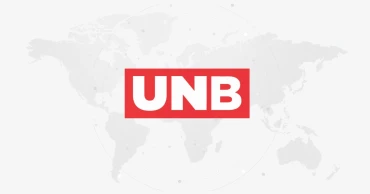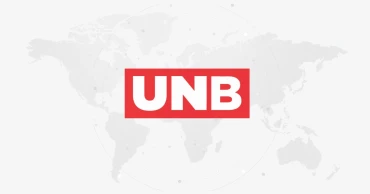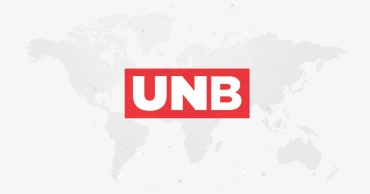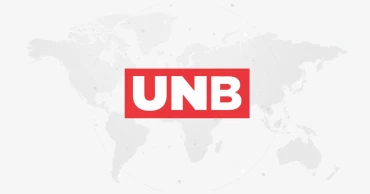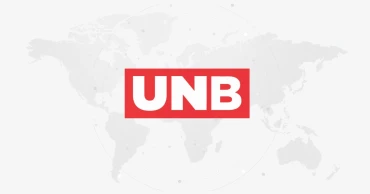profit
Silver Investment Profit Potentials in Bangladesh in 2025: Opportunity or Risk?
Silver has reached a record-high price in Bangladesh this month, marking one of the strongest rallies the market has seen in 2025. This surge has turned silver investment into a serious conversation among general buyers, traders and long-term wealth planners. Let’s look at how the silver price has risen in 2025 so far and whether now is the best time to invest in silver.
Silver Price Rising Trend in 2025
According to recent data released by the Bangladesh Jewellers Association (BAJUS), silver prices have witnessed a remarkable climb throughout 2025. It breaks previous records in multiple categories – 22 Karat, 21 Karat, 18 Karat, and Traditional – reflecting a year-long progression in value.
Table: Category-wise Silver Price Rates as per BAJUS in 2025
Date
Category-wise Price Rates (BDT/Vori)
22 Karat
Cadmium (Hallmarked)
21 Karat
Cadmium (Hallmarked)
18 Karat
Cadmium (Hallmarked)
Traditional
October 14, 2025
6206
5914
5074
3803
September 18, 2025
3476
3313
2847
2135
August 27, 2025
2812
2683
2298
1727
July 8, 2025
2812
2683
2298
1727
June 15, 2025
2812
2683
2298
1727
May 22, 2025
2812
2683
2298
1727
April 23, 2025
2847
2718
2333
1750
March 19, 2025
2578
2450
2112
1587
February 10, 2025
2578
2450
2112
1587
January 22, 2025
2578
2450
2112
1587
.
Read more: 5-Year Bangladesh Sanchayapatra 2025: Revised Profit Rates
Silver market rates in Bangladesh remained mostly stable during the first eight months of 2025, followed by a sharp upswing from September onwards. The 22 Karat rate held around BDT 2,578 per vori early in the year, with minor movement until April’s BDT 2,847, then steadied again through August. A sudden leap to BDT 3,476 in September and a dramatic climb to BDT 6,206 by October marked the pinnacle of this year’s market rise.
Similarly, each vori of 21-karat silver hovered between BDT 2,450 and BDT 2,718 until August, before spiking to BDT 3,313 in September and BDT 5,914 in October. The 18 Karat category stayed near BDT 2,112 through March and BDT 2,298 midyear, then rose to BDT 2,847 and finally BDT 5,074 by October. Traditional silver followed a steadier curve, moving from BDT 1,587 in early 2025 to BDT 1,750 in April, holding steady through August. Then, it jumps to BDT 2,135 in September and now to BDT 3,803.
Overall, all categories showed remarkable late-year growth, suggesting heightened demand and market adjustments influenced by global price pressures and local currency shifts.
Is Now the Right Time to Invest in Silver?
.
Global Market Influence
Silver’s recent price momentum is deeply tied to structural global demand, playing a crucial role in industrial innovation. The metal is essential for manufacturing solar panels, electric vehicles, and even components used in artificial intelligence (AI) systems. As these sectors expand, particularly the clean energy transition, the pressure on silver supply is intensifying.
Production levels haven’t caught up with the pace of industrial consumption, and major mining regions are already signalling reduced output. Therefore, the rising technological dependence and tightening supply point toward a medium-term bullish case for silver. This makes current prices, though elevated, still favourable for long-term investors seeking entry before demand outpaces availability further.
Read more: Gold Buyer's Guide: Know the types, colors, karats of the precious metal
Classic Supply-Demand Impact
The spot market has been showing signs of tightening, with refineries and traders reporting limited physical supply. This scarcity is naturally pushing prices upward. For local investors, silver’s appeal is also growing because it remains a more attainable option compared to gold. Everyday jewellery buyers and small investors have increasingly turned to silver as gold’s price continues to surge beyond affordability.
Globally, this persistent demand imbalance is fuelling a structural tailwind for prices. Even minor supply disruptions could amplify price gains, making silver a particularly attractive hedge in times of inflation or currency depreciation. In essence, the ongoing shortage is an opportunity for strategic investors.
Safe-Haven Demand
In times of economic and geopolitical instability, silver, like gold, becomes a safe-haven asset. The current investment climate, marked by currency fluctuations and uneven stock market performance, has made precious metals increasingly appealing. Yet, silver offers a distinctive advantage: it’s comparatively undervalued when assessed through the Gold-to-Silver Ratio (GSR).
GSR = Gold Price ÷ Silver Price
= BDT 2,13,720 ÷ BDT 6,206 ≈ 34.4 (For October, 2025)
A ratio above 34 indicates that gold is over thirty-four times more expensive than silver per vori. This ratio offers Bangladeshi investors greater upside potential, making silver not only a protective asset but also a tactical play for value appreciation.
Read more: Paribar Sanchayapatra 2025: Revised profit rates of Family Savings Certificate in Bangladesh
Drawback of Price Fluctuation
Volatility is a natural part of the silver market, and its recent price surge illustrates how fast momentum can shift. However, the short-term (like throughout a month) volatility is not a big fall for investors with a medium- or long-term horizon.
In other words, price swings might create anxiety for speculative traders, but for those viewing silver as a strategic allocation, they offer entry opportunities.
Good Reselling Value – Will the Rise Continue?
The continuation of silver’s upward trajectory seems increasingly plausible. Across the year, prices have shown consistent growth with no notable dips – an encouraging sign for both short- and long-term traders. The global narrative favouring precious metals remains intact: inflation concerns and rising industrial demand all reinforce bullish sentiment.
Moreover, first-time buyers have been entering the silver market at a record pace, boosting liquidity and confidence. For Bangladesh, this means silver retains strong resale potential, especially if global economic uncertainty persists. All in all, the industrial relevance, supply constraints, and investor enthusiasm suggest that silver’s rally still has meaningful distance to run.
Read more: Gold Investment in Bangladesh in 2025: Safe Haven or Risky Bet?
Verdict
The investment decision in silver in Bangladesh in 2025 stands at a defining moment. The price of 22-Karat hallmarked silver surged to BDT 6,206, while the 21-Karat price climbed to BDT 5,914. Meanwhile, 18 Karat silver reached BDT 5,074, and the Traditional category rose to BDT 3,803. This dramatic spike reflects tightening supply, soaring industrial demand, and rising safe-haven interest. Given these fundamentals, silver presents a strategic long-term opportunity. For investors seeking value beyond gold, 2025 may well be the year silver shines brightest.
4 months ago
Gold Investment in Bangladesh in 2025: Safe Haven or Risky Bet?
For generations, gold has been viewed as a reliable way to hold value. In Bangladesh, 2025 is turning into another pivotal year for this metal’s role in personal finance. With prices showing an upward trend, profit in gold investment is rising among both cautious savers and ambitious investors. Its promise is stability, though it does not come without trade-offs. Let’s evaluate whether gold is still a safe investment today.
Gold Price Rising Trend in 2025
Bangladesh's gold market witnesses frequent swings, with prices changing noticeably within short periods in 2025. Updates from the Bangladesh Jewellers Association (BAJUS) highlight a steady rise across different categories, confirming gold’s continued momentum.
Table: Recent Rise in Gold Rates in Bangladesh 2025
Date
Category-wise Price Rates (BDT/Gram)
22 Karat
21 Karat
18 Karat
Traditional
September 02, 2025
15,071
14,386
12,331
10,206
August 27, 2025
14,802
14,129
12,111
10,018
July 08, 2025
14,622
13,957
11,964
9,893
June 15, 2025
14,963
14,283
12,243
10,131
May 18, 2025
14,326
13,675
11,721
9,686
April 14, 2025
13,904
13,272
11,376
9,391
March 19, 2025
13,284
12,680
10,869
8,959
February 18, 2025
12,970
12,380
10,611
8,739
January 16, 2025
11,955
11,411
9,781
8,031
.
Read more: 5-Year Bangladesh Sanchayapatra 2025: Revised Profit Rates
The data shows a steady climb in all categories of gold throughout 2025, though not without fluctuations.
22 Karat was at its lowest, BDT 11,955, on January 16 and has risen to BDT 15,071 since September 2, the highest so far. A brief drop occurred from BDT 14,963 in mid-June to BDT 14,622 in early July before rebounding.
21 Karat moved from BDT 11,411 at the year’s start to BDT 14,386. The mid-June level of BDT 14,283 slipped to BDT 13,957 in early July before rising again.
Following the same trend, 18 Karat advanced from BDT 9,781 in mid-January to BDT 12,331 now. It too saw a decline from BDT 12,243 in June to BDT 11,964 in July.
Read more: Shopping in Dubai: What to Buy, Where to Buy from
Similarly, traditional gold increased from BDT 8,031 to BDT 10,206 till now. A similar mid-year dip took it from BDT 10,131 down to BDT 9,893 before recovery.
Overall, all categories reflect a clear upward trajectory from the beginning of the year, with the current month marking the peak. The June-July drop stands out as the single significant short-term dip.
5 months ago
July 2025 Interest Rates of 5-year Bangladesh Sanchayapatra under National Savings Scheme
The National Savings Scheme has introduced important revisions across all categories of savings certificates. Among them, the 5-year Bangladesh Sanchayapatra has undergone a key update regarding its profit allocation framework. Effective from July 2025, the revised structure outlines annual return rates. These rates are set both at maturity and for early encashment, based on the scale of investment. Let’s delve into the revised July-December 2025 profit structure of the 5-year savings scheme.
5-year Bangladesh Sanchayapatra's Interest Rates & Profits for July to December 2025
In assessing the applicable return rate, total accumulated investments across all savings instruments, including past contributions, will be included. The latest investment thresholds are detailed as follows:
i) Up to BDT 7,50,000
ii) Above BDT 7,50,000
The table below outlines the updated annual profit rates for the 5-year scheme, reflecting both maturity and early withdrawal scenarios:
Read more: July 2025 Interest Rates of 3-Monthly Profit-Bearing Sanchayapatra under Bangladesh's National Saving Scheme
Table: Annual Return Rates by Investment Tier – 5-year Bangladesh Sanchayapatra for July-December 2025 Period
Investment Period (Year)
Investments
Up to BDT 7,50,000
Investments
More than BDT 7,50,000
(BDT 7,50,001 and Above)
Profit Rate (%)
1st
9.74
9.72
2nd
10.21
10.19
3rd
10.72
10.70
4th
11.26
11.23
5th / At Maturity
11.83
11.80
.
Individuals opting for the 5-year Bangladesh Sanchayapatra with an investment of BDT 7.5 lakh (7,50,000 or below) will receive the highest annual return at full term. This translates to an annual yield of 11.83 percent (11.83%). For amounts over BDT 7.5 lakh (7,50,001 and above), the peak yearly return is slightly lower at 11.80 percent.
Should encashment occur before maturity, the applicable profit will align with the specified breakdown. For holdings within the BDT 7.5 lakh threshold, the rate stands at 9.74 percent in the initial year. Returns in the second, third, and fourth years are 10.21 percent, 10.72 percent, and 11.26 percent, respectively.
Where the principal crosses BDT 7.5 lakh, early withdrawal will yield 9.72 percent in the first year. The second year offers 10.19 percent, followed by 10.70 percent and 11.23 percent in the third and fourth years, respectively.
Read more: July 2025 Interest Rates of Paribar Sanchayapatra under Bangladesh's National Saving Scheme
Who Can Access July-December 2025 Interests of 5-Year Bangladesh Sanchayapatra?
The revised interest structure applies solely to 5-year Bangladesh Sanchayapatra accounts opened on or after July 1, 2025.
A formal reassessment of the rates is scheduled six months after this policy takes effect. Nevertheless, the earnings rate confirmed at the time of purchase will remain fixed throughout the investment's lifespan. In essence, the initially assigned return is locked in for the full term.
Piling Up
Enhancements to Bangladesh's National Savings Scheme have been introduced for the July–December 2025 cycle. Under the revised structure, the peak annual yield for the 5-year Bangladesh Sanchayapatra reaches 11.83 per cent at maturity for deposits up to BDT 7,50,000. For amounts above BDT 7,50,000, the maximum annual return slightly adjusts to 11.80 per cent. This structure exclusively governs certificates issued from July 1, 2025, onwards.
Read more: 6 Popular Bangladeshi Banks Offering Personal Loans for Marriage, Education, Travel, Medical and Other Purposes
7 months ago
3-Monthly Profit-Bearing Sanchayapatra in Bangladesh: Revised Profit Rates in 2025
The National Savings Scheme 2025 introduced notable changes across all savings certificates in Bangladesh that include the 3-month profit-bearing Sanchayapatra. It focuses on higher profit rates every 3 months for both maturity and early cash-out scenarios against various types of investments. On January 21, the National Savings Department's website disclosed details about tax deductions at source. This clarified the exact amount to be given on savings certificates at maturity or during early withdrawal. Let’s explore the new profit structure of the quarterly interest-bearing scheme.
1 year ago
Sonali Bank reports Tk5,634 crore operational profit in 2024
Sonali Bank PLC has announced a significant operational profit of Tk5,634 crore for 2024, marking a Tk1,788 crore increase from the previous year.
The bank also outlined its strategic focus for 2025, which will include enhancing investments in the SME sector and improving service standards.
Managing Director (MD) Shawkat Ali Khan revealed the figures during a press conference at the bank's headquarters on Thursday, highlighting the bank’s resilience despite political instability and challenging business conditions.
In 2024, Khan said, their operating profit reached Tk5,634 crore, which is Tk1,788 crore higher than the previous year.
Sonali Bank's deposits for 2024 stood at Tk1,64,959 crore, reflecting an increase of Tk14,341 crore from the previous year.
BB-Dollar: Taka loses 12.72% value in 2024 as dollar strengthens
The bank’s loan disbursement reached Tk99,180 crore, although the outstanding figure saw a slight decrease due to adjustments made with government institutions at the end of the year.
The bank's advance-to-deposit ratio is currently at 60 percent.
Sonali Bank recovered Tk1,170 crore from non-performing loans and Tk59 crore from classified loans in 2024, Khan added.
In response to a query, Khan mentioned that the bank is pursuing legal action to recover loans from major defaulters, including Hallmark and TM Brothers Group.
1 year ago
Gold vs Diamond: Which Should You Choose for Investment?
Are you considering investing in precious materials but unsure whether to choose gold or diamonds? Understanding their key differences is crucial when making investment decisions. In this article, we will weigh in on the benefits and shortcomings of both gold and diamonds. By the end, you'll have the insights you need to determine which investment aligns best with your financial goals and risk appetite.
Advantages of Investing in Gold
Safe-Haven Asset:
Gold is often considered a safe-haven asset during economic uncertainties and market volatility. It tends to retain its value and can act as a hedge against inflation and currency fluctuations.
Diversification Benefits:
Adding gold to an investment portfolio can provide diversification benefits, as it typically has a low correlation with other assets like stocks and bonds. This can help reduce overall portfolio risk.
Read more: Gold Buyer's Guide: Know the types, colors, karats of the precious metal
Tangible Asset:
Gold is a physical asset that you can hold in the form of coins, bars, or jewellery. This tangibility can provide a sense of security and ownership compared to other investments like stocks or bonds.
2 years ago
What to Consider Before Investing in a Startup or Company?
Investing in a startup or company can be an exciting opportunity, but it can also be a risky one. Before deciding to invest, several key factors should be carefully considered to help minimize the risks and increase the chances of a successful investment. By taking the time to thoroughly evaluate all the necessary factors, investors can make informed decisions. This article will explore these considerations in more detail and discuss how to evaluate potential investment opportunities.
11 Factors to Consider Before Investing in a Startup or Company
There are numerous reasons why a startup can fail – ranging from unfortunate circumstances to an inadequate business plan or poor timing. According to statistics from the US Bureau of Labor, approximately 20% of newly established businesses do not survive beyond their first year of operation. The following factors need to be considered before making an investment decision.
Analyze the Domain
We all have experience working within certain industries or possess a personal interest in particular sectors. To increase the likelihood of successful investment, it is advisable to seek out startups that align with one's area of expertise or interest. This enables one to better comprehend the business and its potential, thereby allowing one to invest with confidence.
Read More: How to Buy Sanchayapatra in Bangladesh in 2023: A Beginner's Guide
Conversely, investing in startups from unfamiliar sectors may make it difficult to accurately evaluate the business and make informed investment decisions.
Business Plan
When listening to startup founders pitch their ideas, it is important that their plans appear well-thought-out and not untested ideas with uncertain profitability. For early-stage investments, it is advisable to prioritize startups with practical and scalable concepts.
Before investing, it is essential to gain a thorough understanding of the company's framework and processes. Additionally, the business idea should be innovative and fresh and offer solutions to existing problems.
Read More: What to Consider Before Buying Land: A Step-by-Step Guide
Check the Confidence in Founders
A truly innovative idea can be captivating, especially when presented by a passionate founder. While venture investors primarily assess the team, the capability to execute the plan should be given priority. It is not uncommon for startups to be founded by individuals without prior experience in launching new ventures.
However, they must demonstrate their ability to transform an idea into a reality through past experience or accomplishments.
2 years ago
Robi's profit after tax grew 1.3% in '22
Forex loss dealt a heavy blow on Robi’s financials as it knocked off 49% of its profit after tax (PAT) in 2022. Instead of around 361 crore taka, Robi could only book 182.7 crore taka as PAT for the year; which means around 179 crore taka was lost as PAT due to this reason. Robi disclosed this while releasing its financial results for 2022 on Sunday.
Robi continued to enjoy 4G leadership position in 2022 with 53% of its total subscribers being 4G users. Around 76% of Robi’s subscriber base were data users in 2022, which was the highest in the industry. Robi ensured 98.3% population coverage of its 4G network with around 16,000 4G sites at the end of 2022. Compared to 2021, data usage per subscriber, per month, increased by around 36%. In 2022, each Robi data subscriber consumed 5.5GB data every month on an average.
Robi’s subscriber base grew by around 1.4% compared to 2021 to reach 5 crore 44 lakhs at the end of 2022, representing 30% of the subscriber market share; on the other hand, data subscriber base grew by 4% in 2022 to reach 4 crore 11 lakhs. Meanwhile, compared to 2021, Robi’s 4G subscriber base grew by 21% to reach 2 crore 89 lakhs.
With 2,254.3 crore taka revenue in Q4’22, Robi’s revenue in 2022 reached 8,586 crore taka. Compared to 2021, revenue rose by 5.4% in 2022. Compared to Q4’21, revenue rose by 10% in Q4’22.
Voice revenue in 2022 increased by 9%. Compared to Q4’21, voice revenue rose by 7% in Q4’22. Data revenue increased by around 2%, compared to 2021. Compared to Q4’21, data revenue rose by 16% in Q4’22. Including 384.4 crore taka CAPEX investment in Q4’22, Robi’s total CAPEX investment for 2022 reached 1,530 crore taka.
Including 126 crore taka Profit After Tax (PAT) in Q4’ 22, Robi ended 2022 with 182.7 crore taka PAT, which is around 1.3% higher than 2021.
EBITDA in Q4’22 was 1,066.4 crore taka (with 47% margin), while the EBITDA for 2022 reached 3,854.3 crore taka (with 45% margin), marking a rise of 16.5% compared to 2021.
Robi’s total contribution to the Government exchequer reached 4,816 crore taka in 2022, including 1,366 crore taka in Q4’22. Robi contributed 60% of its revenue in Q4’22 and 56% of its revenue in 2022 to the Government exchequer.
The company’s earnings per share (EPS) in Q4’22 was 0.25 taka; EPS for 2022 was 0.35 taka, which was around 1.3% higher than 2021. Had we not lost nearly half of our PAT to forex loss, our EPS for 2022 would have been 0.67 taka, which would have been 96% higher than 2021.
Robi’s Board of Directors have recommended cash dividend at the rate of 7% (i.e. BDT 0.70 per share), which represents 200.7% of the PAT for 2022. The decision was taken at the Board Meeting held on 16th February, 2022. Robi’s 27th Annual General Meeting is scheduled to be held on 25th April, 2022.
Commenting on the financial performance of the company, Robi’s CEO, Rajeev Sethi said: “Forex loss has deprived us from a stellar year; our moment of glory was snatched away when PAT literally halved due to forex loss. On top of that, application of 2% minimum tax felt like the last nail in the coffin as far as our PAT for the year was concerned. On the positive side, we managed to make significant gains out of our optimized cost structure.
Going forward we will continue to leverage cost optimization to strengthen our bottom-line.”
Raising concern over the unsustainability of the data business, he said: “Despite data traffic growth of 45%, our data revenue in 2022 only increased by around 2% compared to 2021 due to ever sliding data price induced by aggressive price war in the industry. In absence of data floor price, such price war is rendering the data business unsustainable. We urge immediate attention of the regulator on this matter.”
Reflecting on the completion of Robi’s 25 years anniversary, Robi’s CEO Rajeev Sethi said: “2022 will always remain a special year for Robi, as we celebrated 25 glorious years of our operation this year. It was particularly heartening to note that we observed this poignant moment of our journey with the largest percentage of 4G users in the industry (53% of our subscribers being 4G users.
Read more: Forex reserves can cover import for 5 months: Quader
2 years ago
Mustard farmers in Madaripur eye huge profit this year
Madaripur mustard farmers are passing very busy time in harvesting the crop as they have achieved bumper yield this year and are expecting huge profit.
The farmers have been showing interest in mustard farming this year thanks to the higher price of edible oil in the market. Farmers have brought over 2000 hectares of land under mustard cultivation this year against the previous year.
According to the District Agriculture Extension department information, mustard is cultivated on 15,650 hectares of land in four upazilas of the district this year against 13,604 hectares of land in the previous year.
Merjon Khalasi, a mustard farmer of the district, said that mustard is being sold at the rate of Tk 3,300 to Tk 3,500 per maund (37.32 kg).
Generally, 12 to 13 maund mustard can be produced from one bigha of land costing Tk 8,000 to Tk 9,000, Merjon Khalasi added.
Md. Moazzem Hossain, Deputy Director of district Agriculture Department, said that four upazilas of Madaripur got bumper production this year. We hope farmers will earn good profit this year.
The government has a plan to produce 50 percent of the annual demand for edible oil in the country in the next three years, said Minister for Agriculture Dr Md Abdur Razzaque at a programme in Gazipur ecently.
The minister said the mustard farmers are getting benefited financially by cultivating such hybrid varieties of mustard redesigned by the country’s agriculturalists.
The Agricultural Ministry has taken a massive initiative to boost up the mustard production, he said.
2 years ago
Tesla says its 4Q profit rose 59%, expects strong demand
Tesla on Wednesday posted record net income in the fourth quarter of last year, and the company predicted that additional software-related profits will keep its margins higher than any other automaker.
The Austin, Texas, maker of electric vehicles and solar panels said it earned $3.69 billion from October through December, or an adjusted $1.19 per share. That beat estimates of $1.13 that had been reduced by analysts, according to FactSet. The company’s profit was 59% more than the same period a year ago.
Revenue for the quarter was $24.32 billion, which fell short of the $24.67 billion that analysts expected.
CEO Elon Musk said that despite price cuts of up to 20% on some of its vehicles announced earlier this month, demand for Tesla products is strong and sales are constrained by production.
Some analysts have said the price cuts were a sign Tesla's sales are softening. But so far in January, Tesla has seen the strongest orders year-to-date in its history, Musk said on a webcast with analysts.
Read more: Elon Musk defiantly defends himself in Tesla tweet trial
“We think demand will be good despite probably a contraction in the automotive market as a whole,” he said. “Demand far exceeds production,” Musk said, adding that Tesla is even making small price increases.
Tesla said in its investor letter Wednesday that it would produce about 1.8 million vehicles this year, and Musk predicted that sales would also hit that number.
Previously Tesla has said its deliveries would grow at a 50% annual rate most years. But 1.8 million would be about a 40% growth rate.
Musk said it’s possible Tesla could build 2 million vehicles this year. “There would be demand for that, too,” he told analysts.
On Jan. 13, the company cut prices in the U.S. and China, its two biggest markets, leading many analysts to believe that demand had fallen due to high prices and rising interest rates.
Morgan Stanley analyst Adam Jonas wrote in a note to investors early Wednesday that demand is a problem.
“In our view, the price cuts are indeed a response to slowing incremental demand relative to incremental supply,” he wrote.
Tesla's automotive gross profit margin, which is revenue minus cost of goods sold, fell from 30.6% in the fourth quarter of 2021 to 25.9% in the same period in 2022 as previous discounts took hold.
Shares of Tesla were up slightly Wednesday, closing at $144.43. They rose another 5.5% in extended trading following the earnings report.
Morningstar Equity Strategist Seth Goldstein, who covers Tesla, said Musk addressed fears about demand falling by releasing the 1.8 million sales projection. At least for this year, though, he sees Tesla's profit margins eroding further due to the price cuts.
“Longer term I think the profit margins will bounce back,” he said.
Average sale prices, he said, rose in the fourth quarter even with price cuts in China, Goldstein said, and the company was able to increase productivity at new factories in Texas and Germany. But that wasn't enough to offset higher raw materials and shipping costs, he said.
Read more: Tesla says it sold a record 1.3 million vehicles last year
Tesla also said it has rolled out its “Full Self-Driving” software to about 400,000 users, and that it recognized $324 million in revenue from “Full Self-Driving” software during the quarter. Despite its name, “Full Self-Driving” cannot drive itself, and Tesla warns drivers that they must be ready to intervene at any time.
The company said it knows there are questions about macroeconomics in the face of rising interest rates. “In the near term we are accelerating our cost reduction roadmap and driving towards higher production rates, while staying focused on executing against the next phase of our roadmap,” the letter said.
Musk was asked how Tesla would mitigate brand damage since his $44 billion takeover of Twitter, based on Morning Consult poll results showing a steep favorability decline among Democrats.
But Musk said he has 127 million followers on the social media platform, and his following keeps growing. “That suggests that I’m reasonably popular,” he said, adding that the number of followers speaks for itself.
For the full year, Tesla made $12.56 billion in net income, or an adjusted $4.07 per share.
The company's stock tumbled 65% last year on fears that Musk was distracted by his $44 billion acquisition of Twitter. But so far this year they’re up about 35%.
Price cuts that began Jan. 13 fueled concerns on Wall Street that demand for Teslas was falling as intense competition arrives from startups and legacy automakers.
3 years ago





